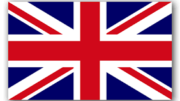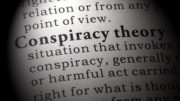I received this Guest Post somewhat out of the blue and unsolicited. To tell you that I was impressed would be an understatement. It is both brilliantly written and also a sad indictment of Britain’s higher education system. The author, Bennett Morris, at least on education as far as I can see, holds a similar sceptical view of the education system as I have. I also would once have wanted my child to go to university and become a doctor or an accountant or some sort of qualification that would allow them to go on to achieve their best in life. Now I’m not so sure and I think my child would be better off and may have more opportunities for employment, if he became a tailor.
The author has informed me that they are interested in receiving feedback on this article and can be contacted for that purpose via the Parler social media platform at @Librarian176b
I don’t want my son to go to university.
By Bennett Morris.
Both my grandmothers went to university, one studied history in London, the other dentistry in Russia, I went to a Polytechnic, which is now a university. My son seems to be more technically minded than academic, though at the moment he wants to be a vet or a doctor. On other days he wants to be a Prince or a cat or a mermaid or a dragon. At 5 years old he says he is a teenager. He has a lot of understanding and growing up to do.
I studied librarianship at a Polytechnic which is now one of the new universities. I got there from a girls’ grammar school in West London, the best school in the Borough, suitable for me but not for my sister who was less academic. Our grammar school had a proud tradition of getting the best girls into Oxbridge, a handful each year if we were lucky. Other top students would go to other universities, some girls would go to colleges, some straight to work. That all changed in 1974 when the comprehensive system caught up with us and we briefly became a junior college, then a mixed Sixth Form College.
We had a full range of out of school clubs, sports and social and a sixth form society which had outside speakers. Our English teacher made me proud of our debating society and explained that a good debater could argue either side of any question. She taught us to see the other person’s point of view as a valid one, often sincerely held, though sometimes only adopted for the purposes of debate. The school is now part of a local college campus, which still values debates as a learning method. Our English lessons started from reading the texts, or speaking them in the case of plays, which either we acted out ourselves or went to see productions, including Shakespeare at Stratford-upon-Avon. One year our drama society did Death of a Salesman by Arthur Miller, one of the pupils who portrayed Linda was terrific. Many of us who saw the production will never forget it, and it is over 40 years ago now. I know because I am part of a Facebook group for ex-students, many of whom are like me, very far from London now, geographically speaking.
So I am horrified to find that education is now indoctrination, that it consists of learning and parroting the approved line and that libraries are also subject to the thought police. In 1984 George Orwell gave us an awful warning, not an instruction manual! People live in their own little bubbles and have safe spaces to retreat to if they are challenged. Librarians used to see part of their job as challenging people’s deeply-held views and making them uncomfortable, making people think. We read Lord of the Flies at school, we were warned it was harrowing and there were extra classes on the bleak world view it presented. We understood we were at school to be presented with divergent opinions, at primary school we considered the way creation and evolution could both be true, chaos and formlessness being the best way the ancients knew to explain the formation of the universe. In particular we learned that knowledge was advancing so fast that we could not possibly learn everything we needed to know at school, and learning how to learn was the most important skill. Evaluating our sources was of course a vital part of reference work in librarianship, even the height of a building can vary according to your source. So we were taught to double check everything and give our sources when answering an enquiry.
As parents, we have already told our son’s school we do not want him indoctrinated in religion, in a wishy-washy way that papers over the cracks and pretends all religions are equally valid and acceptable ways to see the world and from that to worship and to behave. We have our own religion, which we do not think is right for everyone, and we have respect for other religions and religious people and their leaders. We do not see equal value in everything peddled as a religion. I have enrolled my son in our own local religion school, and do my best to follow its teachings in my own home. I set great value by the fact that my religion values debate and divergent views, the worst that can happen is excommunication, as far as I know no-one gets physically attacked and certainly not shot for wanting to leave or having a different view. People walked out, took their followers and started their own brand of the religion and had their own places of worship, but ‘live and let live’ has always been our motto. ‘Choose life!’ is one of our greatest slogans.
An education system that does not encourage independent thinking is failing to prepare our young people for the future. Just as learning follows mistakes, children and young adults have to be free to interpret the world in new ways, have their own thoughts and invent their own solutions to problems they find around them. There is no faster route to stagnation than pre-processed thought and hostility to novel approaches. The world needs flexible thinkers who can perceive the box and still find ways outside it. You cannot bend the rules until you know what the rules are and why they are there. They may be physical limits of your materials, like not putting a book in water because it will dissolve and you won’t be able to read it, though a few splashes can be fixed by careful drying. They may be mental limits, my son cannot reason and empathise fully yet because he is too young, but he can see when Mummy is upset and offer a hug, brush my hair or distract me with a game.
Attempts to impose a political philosophy upon our youth and punish them by low marks or even expulsion for not parroting the approved world-view is dangerous for them and for us as a society. The British political system worked for decades on the principle of letting Labour and the Conservatives take it in turns to form Government and Opposition and both were valued. My South African cousin was horrified that we could be rude about the Prime Minister in the sanctity of our own home and amazed to discover that a Party existed in Parliament, not in secret, to oppose the Government. Such were the years of the Apartheid regime in her country, gladly now a thing of the past.
One day I will have to explain the Soviet Union to my son, and Chairman Mao’s China and other such totalitarian regimes. The map of the world on my wall is already out of date and my experience of owning an East German motorcycle just shows my age. My grandmother was born in a country that didn’t exist a few years later, and now exists again, long after her death. She went to University in St Petersburg, she would never call it Leningrad. Just after she graduated in dentistry, the Russian Revolution broke out, so she went into the Red Army as a nurse. The lesson I learn from her life is that you can do whatever you want in life, as long as you understand there are consequences. Her family brought her out of Eastern Europe as a young girl, she chose to go back when she was 18. Her brother came to Russia and got her out to Antwerp, where she met and married his best friend and they settled in Paris. She had 2 boys, her husband was killed in 1934 following a taxi accident so she was on her own with her boys in 1940 when the Nazis invaded Paris. They escaped to London, my father went to work and his younger brother to school. When they were 18 they each chose British nationality and served in the British Army. So my grandmother was a refugee 3 times in her life and went on to bring me up following the tragic early death of my mother while I was a toddler.
We fail our young people if we do not prepare them for change, if everything they do is within their comfort zone. As a society we need bright minds unfettered by the political doctrines of the day, open to new ideas and approaches while conscious of our history. To forget our past is to be doomed to repeat those mistakes. To ignore views and opinions and even facts we do not like and not to teach people about them is dangerous. How will they be able to counter evils if they have never been exposed to divergent ways? This is why banning Holocaust denial or Flat Earthers is unwise, those people need to be debated and even mocked openly so the flaws in their arguments can be exposed. They may even change their own minds. If it is banned, they will fester quietly and with the internet they can find like minds and grow their movement. Do not send your children to be indoctrinated at today’s universities. I consider my son would be better off learning a trade and getting an apprenticeship when he is older, vocational training has served me well and led me directly to my career. I am deeply saddened that this day has come and hope and pray our universities, schools and colleges will learn to value true diversity of thought once again.






Very good article and I agree. The more one encounters, liked/disliked good/bad, the more learned and the stronger one becomes. I was born in NI 4 years before ‘the troubles’ started. Growing up there was still fun & great, but with some adversity and fast change added (eg local supermarkets bombed on same day)
My view on Unis post 1997: only courses of value are B.Eng, BSc and Dr, Dentist, Vet
Mine too along with “Do no harm” – and I break laws if not harming
“East German motorcycle”: lol my first was a CZ175 Trail, cheapest “off-road” bike in local classifieds and all I could afford when 14. Parents knew nothing about bikes, had to learn how to ride from owners handbook